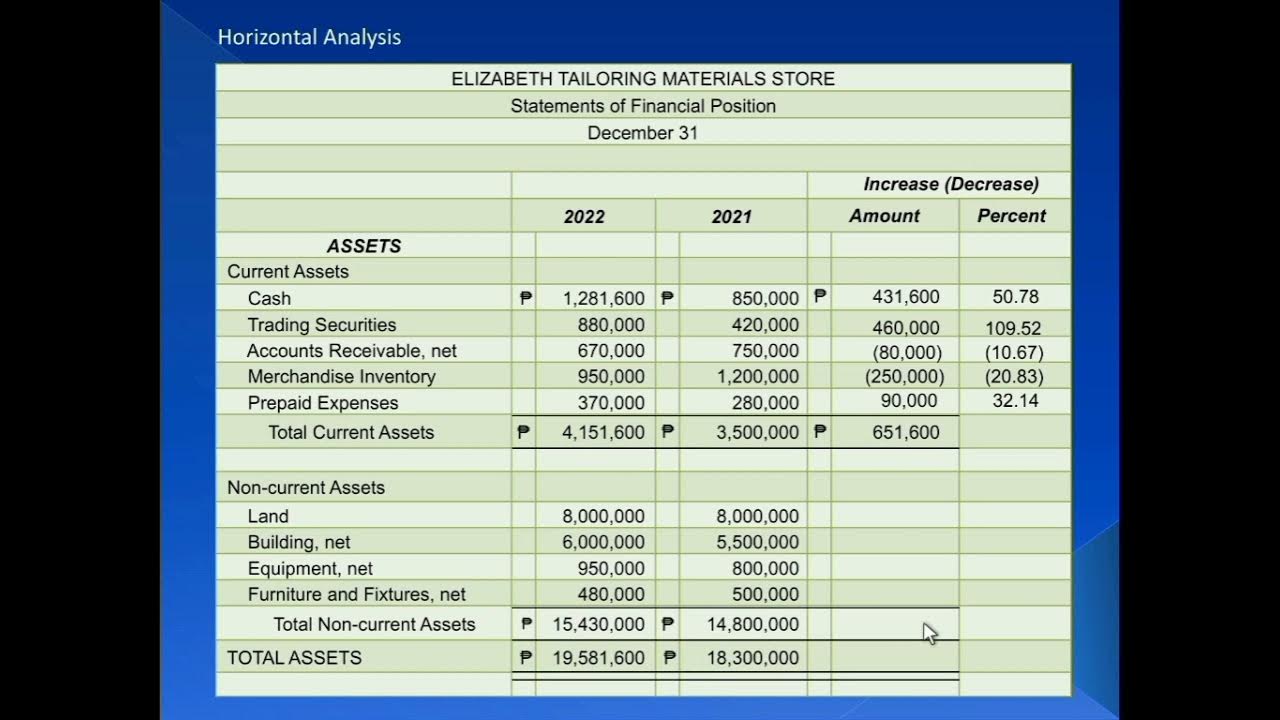Introduction to Accounting Theory
Summary
TLDRIn this engaging lecture, Philip Wong introduces accounting theory by emphasizing the importance of analysis over rote learning. He discusses the complexities of competing theories in accounting, highlighting the necessity of understanding their foundations and practical applications. Wong contrasts positive and normative theories, illustrating their roles in explaining and predicting financial behavior. He also delves into historical developments in accounting theory and critiques common misconceptions. Ultimately, he encourages students to think critically and creatively about accounting, equipping them for successful careers in a dynamic field.
Takeaways
- 😀 The video emphasizes the importance of mental health and self-care practices in daily life.
- 📚 It discusses various strategies for managing stress, including mindfulness, exercise, and journaling.
- 🧠 The script highlights the impact of negative thoughts on mental well-being and offers cognitive reframing techniques.
- 🤝 The importance of seeking support from friends, family, or professionals when dealing with mental health challenges is underscored.
- 🌱 It encourages viewers to adopt a growth mindset and view challenges as opportunities for personal development.
- 💪 The video advocates for setting realistic goals and celebrating small achievements to boost confidence.
- 🧘♀️ Practicing gratitude and positive affirmations is recommended to improve overall mental health.
- 🔄 The script stresses the need for regular check-ins with oneself to assess emotional health and make necessary adjustments.
- 📅 It suggests incorporating self-care routines into daily schedules to prioritize mental wellness.
- 🌍 Finally, the video promotes the idea that mental health is just as important as physical health, urging viewers to destigmatize mental health discussions.
Q & A
What is the main focus of the accounting theory course described in the transcript?
-The main focus is on understanding and analyzing accounting theories rather than just preparing for exams. Students are encouraged to think critically about how theories can be applied and analyzed in real-world situations.
Why does the speaker believe that simply knowing accounting rules is insufficient?
-The speaker emphasizes that accountants need to be able to explain the meaning of rules and how to achieve desired objectives using those rules, rather than just memorizing and repeating them.
What is the significance of competing theories in accounting?
-Competing theories make it difficult to have a unified understanding of accounting. Different valuation methods, such as historical cost versus revaluation, highlight the inconsistencies within accounting practices.
How does the speaker define a theory?
-A theory is defined as more than just a hunch; it should have a structure and be able to provide expectations about the world. It must be logical, based on evidence, and able to explain or predict phenomena.
What does the speaker say about the importance of evidence in supporting theories?
-The speaker notes that theories are strengthened by the amount and quality of evidence supporting them. A theory backed by numerous observations is considered more reliable.
What is the difference between positive and normative theories in accounting?
-Normative theories prescribe what should be right in the world, providing guidance on good and bad practices, while positive theories aim to explain and predict accounting behaviors without prescribing any actions.
What historical periods does the speaker mention regarding the evolution of accounting theory?
-The speaker outlines four historical periods: the general descriptive period (1801-1955), the normative period (1956-1970), the specific descriptive or positive period (post-1970), and the recent period focusing on Green accounting.
Why does the speaker believe that accounting rules are slow to change?
-The speaker suggests that accountants tend to be conservative, leading to slow implementation of new rules and the creation of ad hoc solutions rather than a cohesive set of principles.
What are the two scientific methods discussed in the transcript, and how do they differ?
-The two methods are induction and deduction. Induction involves drawing general conclusions from specific observations, while deduction starts with a general idea and seeks specific evidence to support it.
How does the speaker address the criticism of accounting theory?
-The speaker acknowledges various criticisms, including views of accounting as a historical record, a language of business, or merely a set of political rules, suggesting that accounting theory is complex and subjective.
Outlines

Этот раздел доступен только подписчикам платных тарифов. Пожалуйста, перейдите на платный тариф для доступа.
Перейти на платный тарифMindmap

Этот раздел доступен только подписчикам платных тарифов. Пожалуйста, перейдите на платный тариф для доступа.
Перейти на платный тарифKeywords

Этот раздел доступен только подписчикам платных тарифов. Пожалуйста, перейдите на платный тариф для доступа.
Перейти на платный тарифHighlights

Этот раздел доступен только подписчикам платных тарифов. Пожалуйста, перейдите на платный тариф для доступа.
Перейти на платный тарифTranscripts

Этот раздел доступен только подписчикам платных тарифов. Пожалуйста, перейдите на платный тариф для доступа.
Перейти на платный тарифПосмотреть больше похожих видео

PELAPORAN DAN ANALISIS KEUANGAN (LAPORAN KEUANGAN) l BARBARA GUNAWAN

1

Part 1: Financial Statements Analysis (Intro, Horizontal Analysis and Vertical Analysis)

[MEET 7] AKUNTANSI SEKTOR PUBLIK - AKUNTANSI UNTUK BELANJA & BEBAN

How NOT to Learn a Language, Do This Instead!

Accounting Equation | Class 11 | All basics Explained | Part 1
5.0 / 5 (0 votes)
